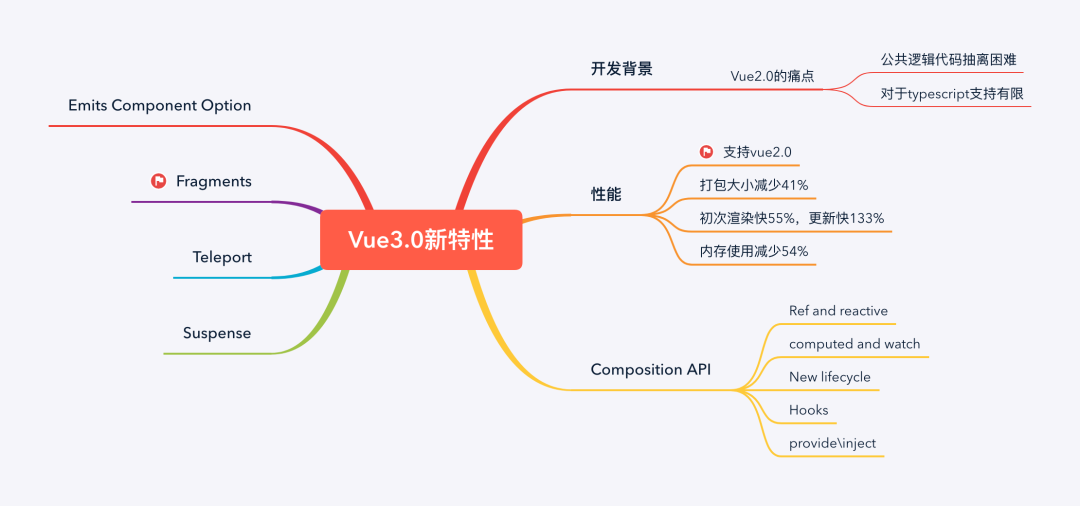Vue3 如何使用 Emit,你學會了嗎?
 圖片
圖片
1. vue3 使用 emit
在 Vue 3 中,emit 是一種用于在子組件中觸發事件并在父組件中監聽這些事件的機制。
這為組件間通信提供了一種方式,尤其是在處理父子組件數據傳遞和交互時非常有用。
Vue 3 支持兩種主要的方式來使用 emit:
1.1. 選項 API 方式
在傳統的選項 API 方式中,emit 是通過 this.$emit 來調用的。
例如:
// 子組件 ChildComponent.vue
<template>
<button @click="handleClick">Click me</button>
</template>
<script>
export default {
name: 'ChildComponent',
methods: {
handleClick() {
this.$emit('custom-event', 'Hello from child');
}
}
}
</script>在父組件中,你可以監聽子組件發出的事件:
<ChildComponent @custom-event="handleCustomEvent" />
<script>
import ChildComponent from './ChildComponent.vue';
export default {
name: 'ParentComponent',
components: { ChildComponent },
methods: {
handleCustomEvent(payload) {
console.log(payload); // 輸出 'Hello from child'
}
}
}
</script>這種方式簡單直觀,適用于不需要嚴格類型檢查的場景 。
1.2. 組合 API 方式
Vue 3 引入了 Composition API,提供了更強大的工具集來構建組件。
在這種情況下,你可以使用 defineEmits 函數來定義和使用 emit:
// 子組件 ChildComponent.vue
<template>
<button @click="emitEvent">Click me</button>
</template>
<script>
import { defineEmits } from 'vue';
export default {
setup() {
const emit = defineEmits(['custom-event']);
function emitEvent() {
emit('custom-event', 'Hello from child with Composition API');
}
return { emitEvent };
}
}
</script>同樣地,在父組件中監聽子組件發出的事件:
<ChildComponent @custom-event="handleCustomEvent" />
<script>
import ChildComponent from './ChildComponent.vue';
export default {
name: 'ParentComponent',
components: { ChildComponent },
methods: {
handleCustomEvent(payload) {
console.log(payload); // 輸出 'Hello from child with Composition API'
}
}
}
</script>這種方法允許你在組件的 setup 函數中定義 emit,并且可以更靈活地處理組件間的通信 。
1.3. 驗證函數
Vue 3 允許你在 emits 選項中使用驗證函數,以確保傳遞給 $emit 的參數符合預期。
驗證函數應該返回一個布爾值來指示事件參數是否有效。
這有助于防止在生產環境中由于錯誤的參數而導致的問題 。
1.4. 事件總線
對于更加復雜的跨組件通信,你可以使用事件總線(Event Bus)。
事件總線允許組件之間通過一個中心化的實例來發送和接收事件,這種方式特別適用于那些沒有直接父子關系的組件間通信。
例如,使用 mitt 庫可以輕松實現事件總線的功能 。
1.5. 注意事項
當使用 emit 時,有幾個注意事項:
- 確保在父組件中正確監聽子組件發出的事件。
- 在子組件中觸發事件時,確保傳遞正確的參數。
- 如果使用 Composition API,記得導入 defineEmits 并正確使用它。
通過以上方式,你可以有效地利用 emit 在 Vue 3 中實現父子組件間的通信。
此外,如果你的應用中有多個組件需要互相通信,考慮使用事件總線或者更高級的解決方案如 Vuex 來管理狀態。












































